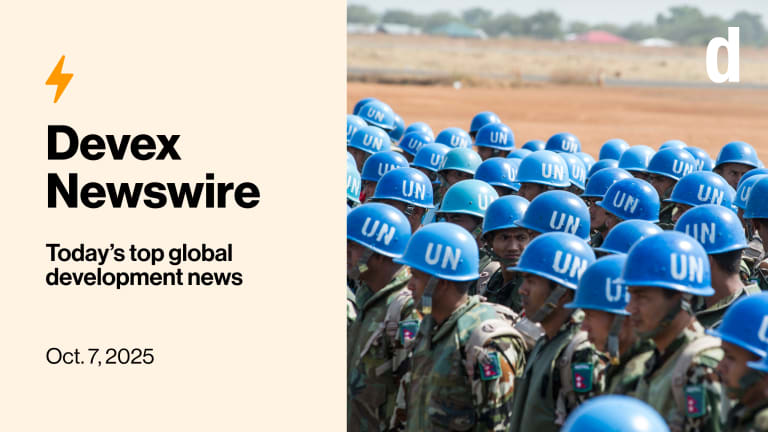Back in 2017, the international nonprofit Results for Development pivoted its mission to put local changemakers at the heart of its work, strengthening health, education, and nutrition systems. Today, R4D, like so many INGOs, is not only trying to figure out its place amid the long-standing push toward localization, but also its role in a world shorn of massive amounts of aid money.
Gina Lagomarsino, president and CEO of R4D, said there is still a critical role to play, albeit a more supportive, specialized one.
“We spent a lot of time back then going out and talking to, especially the government leaders that we were working with around the world, to ask them: What is it that you want? What is it that you need from us?” Lagomarsino said at Devex Impact House on the sidelines of the 80th United Nations General Assembly.
This story is forDevex Promembers
Unlock this story now with a 15-day free trial of Devex Pro.
With a Devex Pro subscription you'll get access to deeper analysis and exclusive insights from our reporters and analysts.
Start my free trialRequest a group subscription







